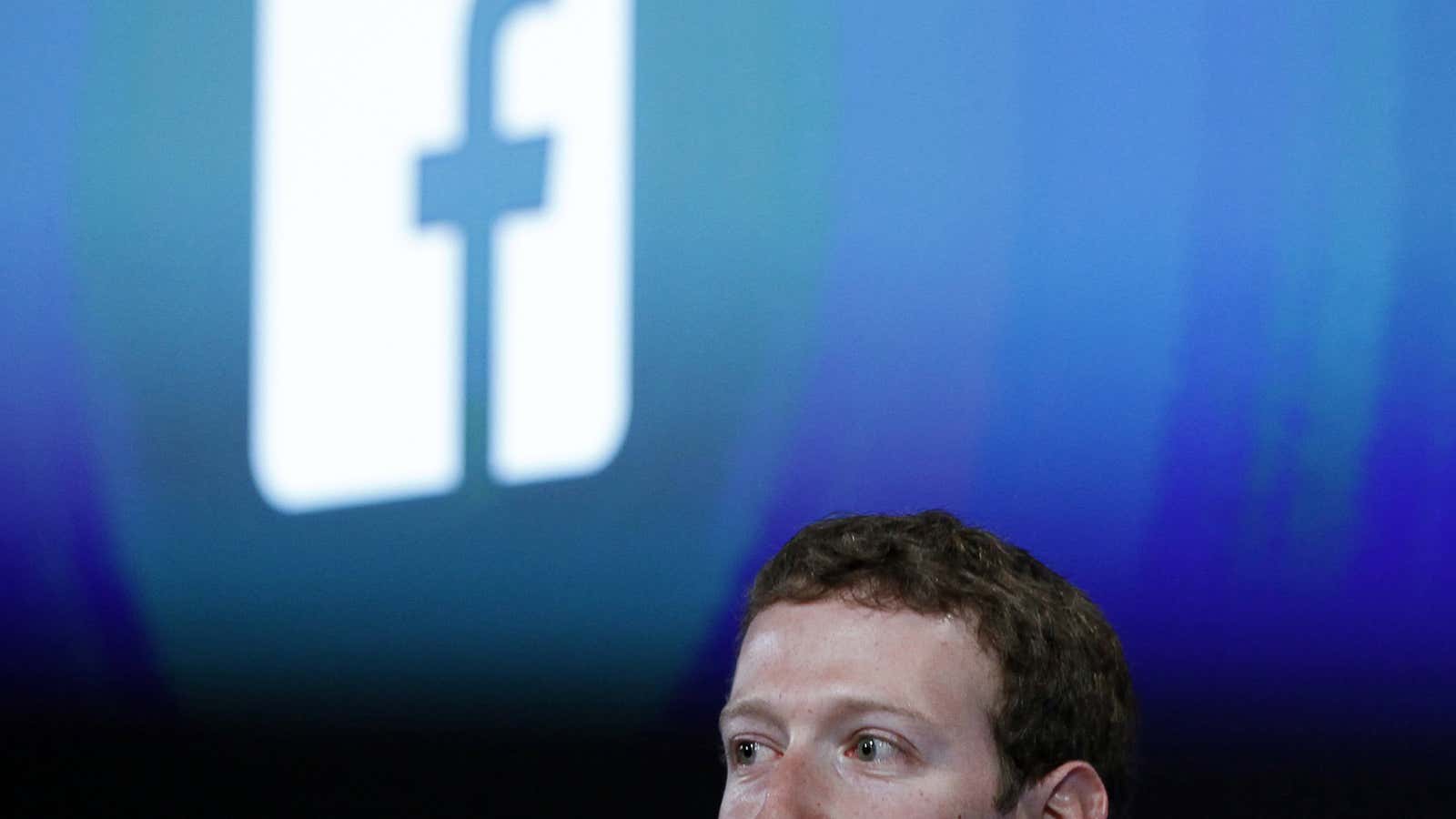Facebook is ”only weeks away” from getting regulatory approval to become a payment and remittance processor, reports the Financial Times (paywall). Once the central bank of Ireland—where Facebook’s non-US business is registered and headquartered—approves Facebook as “electronic money institution,” its users will be able to send money to each other, or to online sellers. It’s unclear whether the service will be available only in Europe or everywhere outside the United States. (Facebook declined to comment and declined to offer reasons why.)
Facebook Credits, a now defunct payment system the company used for about a year between 2011 and 2012, was an unmitigated flop. But while Facebook users could spend Credits only on apps and virtual items, the new system would allow them to send money to each other too. That makes it more appealing, and means it has two big beneficiaries:
1) You
Ever since Kenya’s mobile money transfer service, M-Pesa, became a byword for financial inclusion, companies and states across the world have striven to reproduce its success. Three-quarters of Kenya’s population uses the services and roughly a third of the country’s GDP flows through its servers. But these numbers have never been replicated anywhere else.
There are two main reasons. First, Kenya’s central bank took a remarkably farsighted view of regulation and allowed M-Pesa to grow unfettered. Those that would bring it to other developing countries, such as India, have to deal with active, cautious central banks. Second, the western world had little need for something like M-Pesa. Europe is a world-leader in online banking; North Americans rely on services such as PayPal.
Nonetheless, there could be demand for M-Pesa-like services. In Europe, though single-market laws mandate free movement of goods, services and people across EU borders, moving money—at least where individual bank-account holders are concerned—is far from free. Banks charge onerous rates to move money across borders and are none too hasty about it either.
The drawback to M-Pesa’s model, however, is that it’s tied to mobile phones, and hence confined to within a country. But a clutch of financial-services start-ups offering cross-border transfers have emerged in what is referred to as the “fintech,” or financial technology, sector. The FT reports that Facebook has conducted talks with at least three of them, including Transferwise, which Quartz profiled here. Their successes have been modest.
The new thing that Facebook brings to the equation is the world’s biggest directory. As long as people have connected their Facebook accounts to bank accounts, it offers a simple and convenient way of moving money to friends, both within Europe and perhaps beyond its borders—the worldwide M-Pesa that has been so long dreamt of.
2) Facebook
Facebook has little choice but to get into payments. Its biggest competitors are doing it. Google has been trying to leverage its own half-billion-strong base of Gmail users to push its own email-based payment system. WeChat, an instant-messenger service in China, has long doubled as a payment processor, morphing into a provider of everything from remittances to financial services.
There would be two big benefits for Facebook. The first is income. Facebook already gets 10% of its revenue from the cut it takes on payments made to providers of apps that require payment. As users can send money to each other and buy more goods on Facebook, the volume of transactions going through the site will grow many-fold. Even at a small percentage of these transactions, Facebook’s income stands to gain substantially.
Second, payment information is the holy grail for big data collectors like Facebook. If the company can track purchases, it can build richer profiles based not just on browsing patterns but on actual cash spent. Even better is if users end up buying things they’ve seen advertised on Facebook, since it allows the company to prove to advertisers that their ads were worth the money. That would cement Facebook’s position as a “must-buy” for advertisers, and safeguard its future.
